Today's Tidbit... Football's First Striped Helmets
In today's football, helmet decorations come in all stripes or, in Penn State's case, one stripe. Penn State is an outlier and claims the title of the most boring helmet in the game: a plain white helmet and a single blue stripe. Even the Cleveland Browns are downright edgy with their plain orange helmets and three center stripes.
Of course, one's preferences regarding the appearance of football uniforms and equipment is a matter of taste, so Penn State fans may be forgiven for their fondness for barrenness. Still, the bonnets worn by Nittany boys raise the question, "When did teams first stripe their helmets and why?" The question is more challenging to answer than it might appear because no source tracks such information in an easily searchable form.
Before covering the striping pioneers, let's examine why early helmets did not have stripes. The earliest headgear resembled wrestling headgear, protecting against cauliflower ear more than blows to the head. After the turn of the century, football headgear shifted to lightly padded canvas and leather caps with some adding molded leather crowns that began taking the shape resembling those worn today, such as Spalding's Model W below. So, it wasn’t until the mid-1910s that there was an opportunity to paint a strap or two.
Teams have worn colored helmets since Carlisle broke the paint barrier in 1906 to help distinguish their eligible receivers in the new forward passing era. Selected others followed suit, including Swarthmore in 1907, but no one seems to have striped out for a bit longer.
The earliest mention of a striped helmet in a newspaper appears in an image and description of the 1916 Harvard-Yale game, when Yale's All-American end, George Moseley, wore a helmet with a white stripe down the middle of his headgear. Since other Yale players in the image are stripeless, I suspect Moseley's stripe distinguished him from others on pass plays.
Next came the Utah Utes, who sported white helmets with red stripes in 1919 and the following years, so they are the clubhouse favorites as the first full team to wear striped helmets. While I did not find an explanation for their striping, I assume the white helmets with stripes visually differentiated the team for players and fans alike.
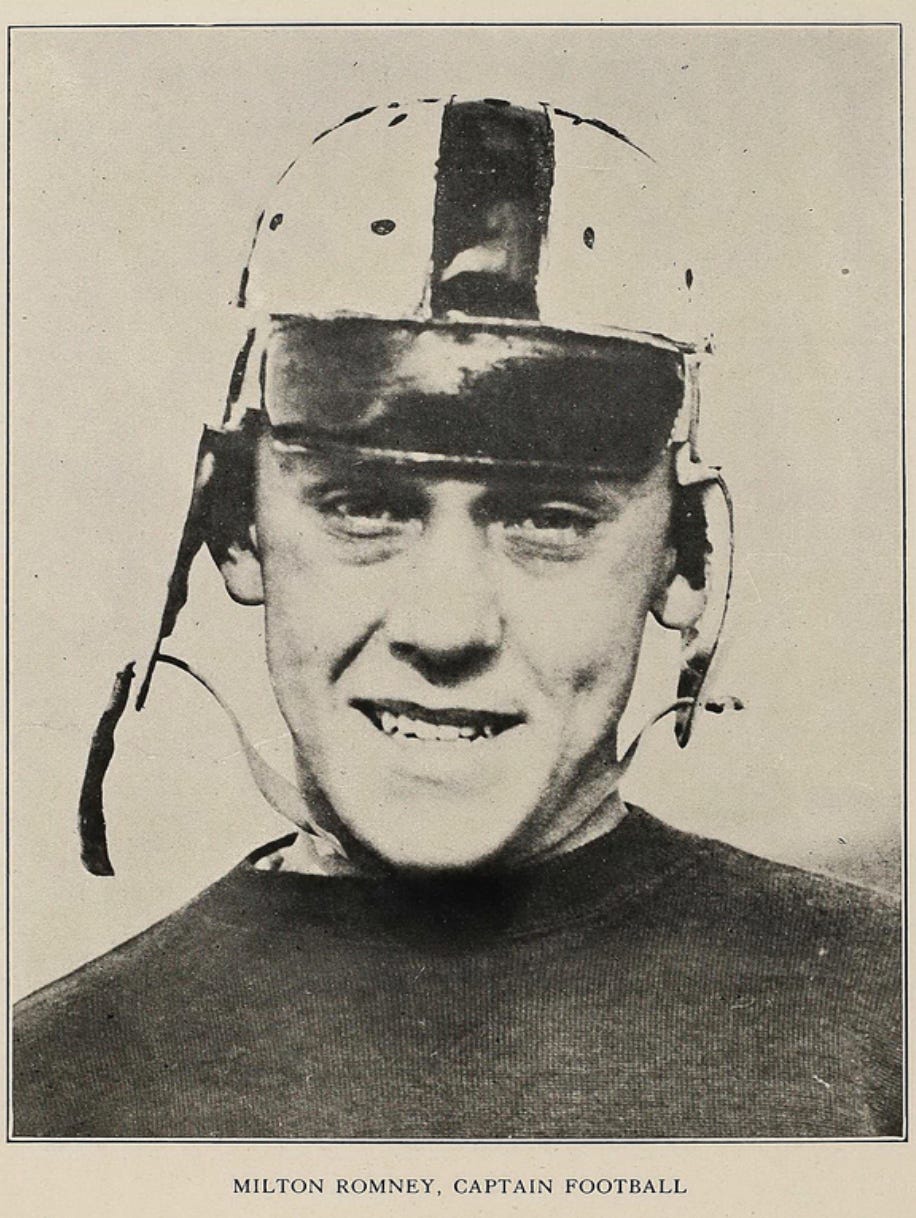
The Rock Chalk Striped Hawk team at Kansas wore fancy lids in 1921 under head coach Potsy Clark and continued those decorations for a few years.
The first newspaper article explaining why a team had striped helmets came in 1923 when Boston College bore helmet stripes versus Centenary. The article explains that Boston College striped their helmets to help fans distinguish friends from foes, likely because both teams wore maroon jerseys.
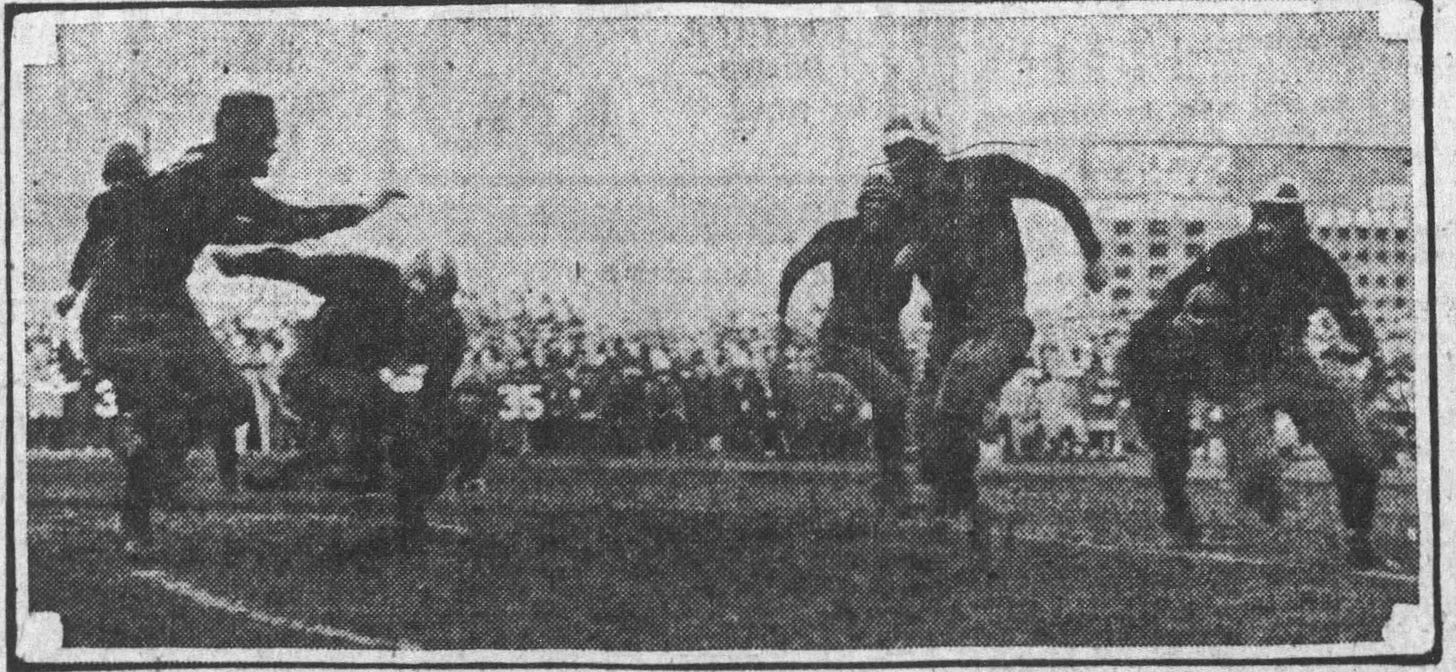
Harvard also had white striped helmets in 1923, though they may have used them only in practice to distinguish the varsity from the scout team. A report on a late November practice indicates they substituted a striped helmet for the ball to allow those on the field to see the "helmet/ball" in the fading light.
By 1925, sporting goods manufacturers produced factory-made helmets with the helmets’ base and striping available in several colors.
As explained in the article linked below, multi-colored and striped helmets became more common after 1930 when the NCAA passed a rule preventing teams from wearing helmets or jerseys with colors closely resembling the brown or white balls of the day. Painting stripes on helmets was a means to comply with the rule.
Of course, if anyone knows a team that striped their helmets before or in the timeframe of those mentioned above, please comment below.
Postscript: I missed one from my library, so Indiana is the new clubhouse leader. The image below shows the Hoosiers with striped helmets in 1917, in addition to their front seven wearing letters on their back reading (left to right): I-N-D-I-A-N-A.
Click here for options on how to support this site beyond a free subscription.



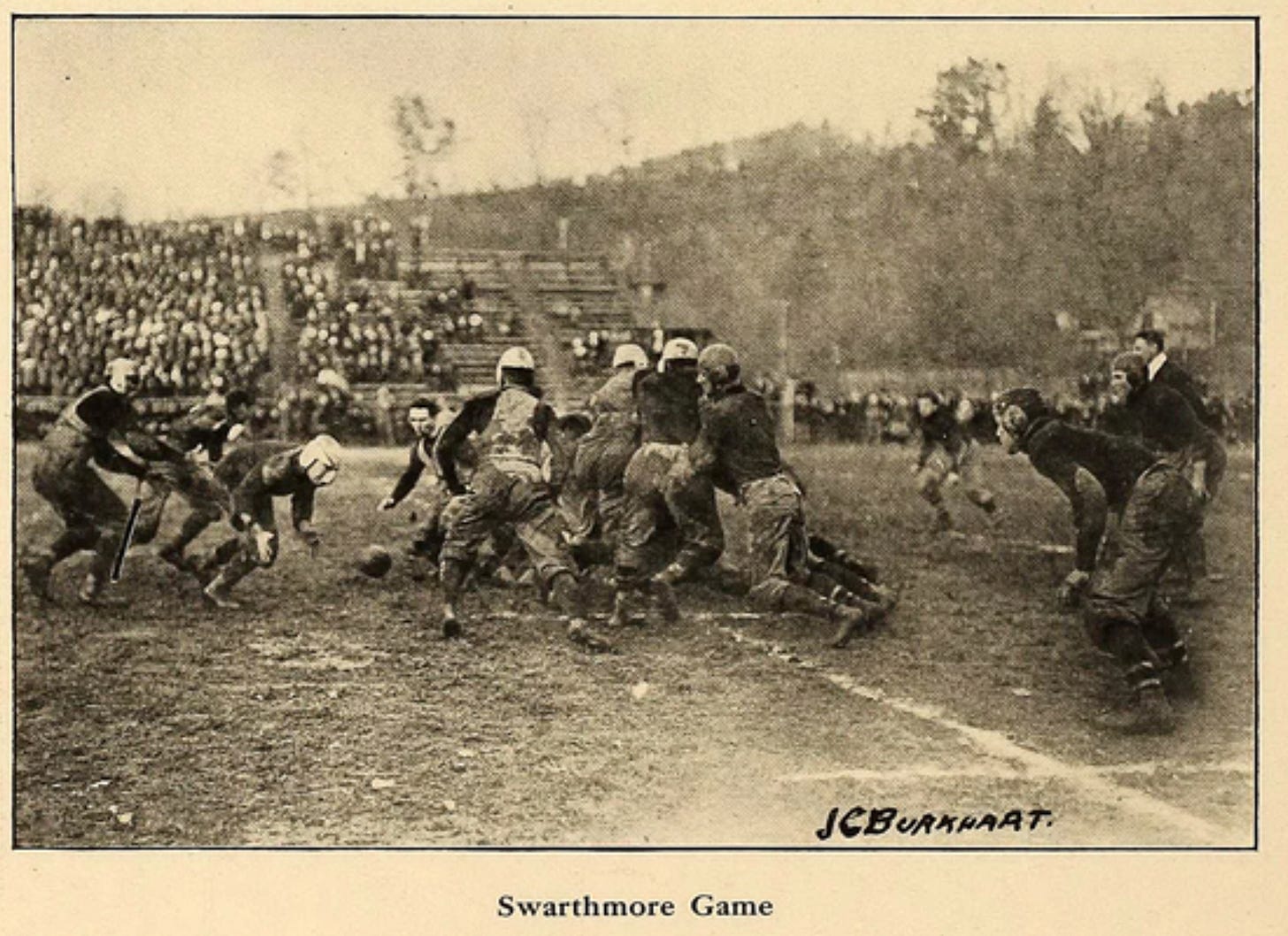
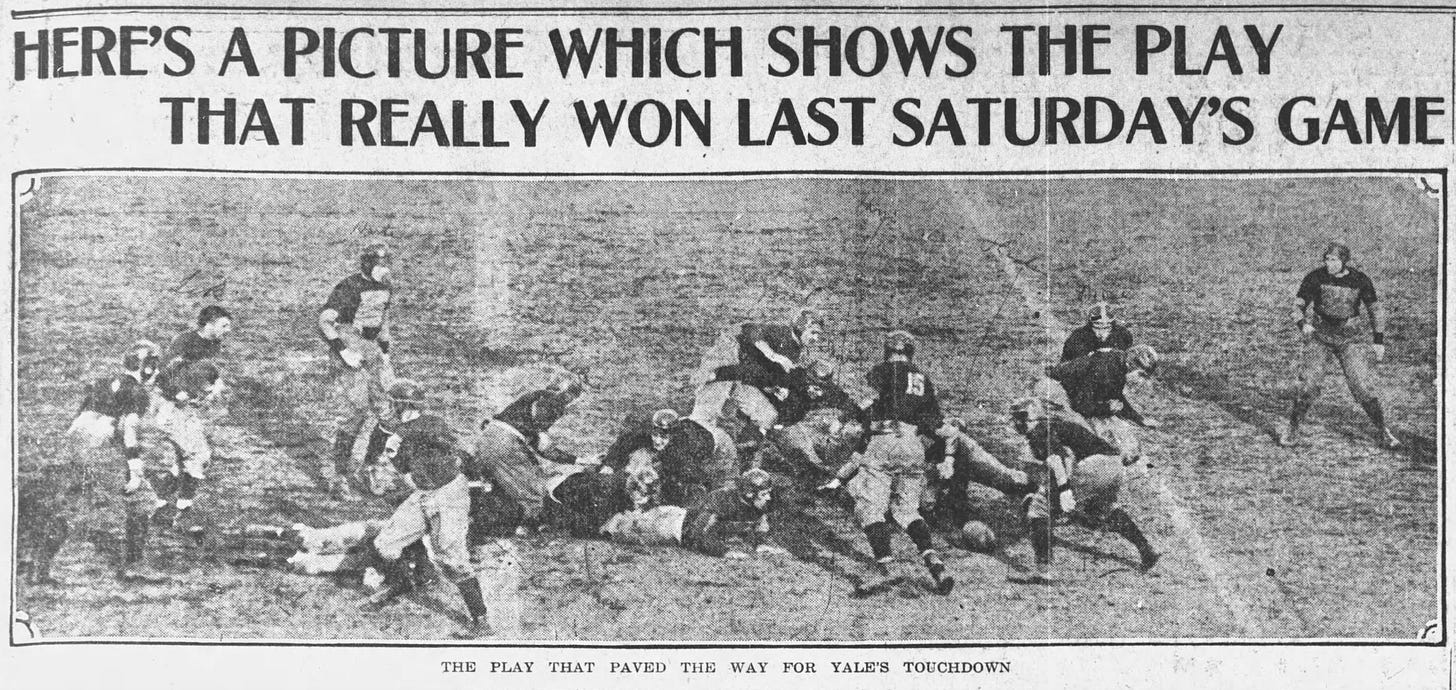
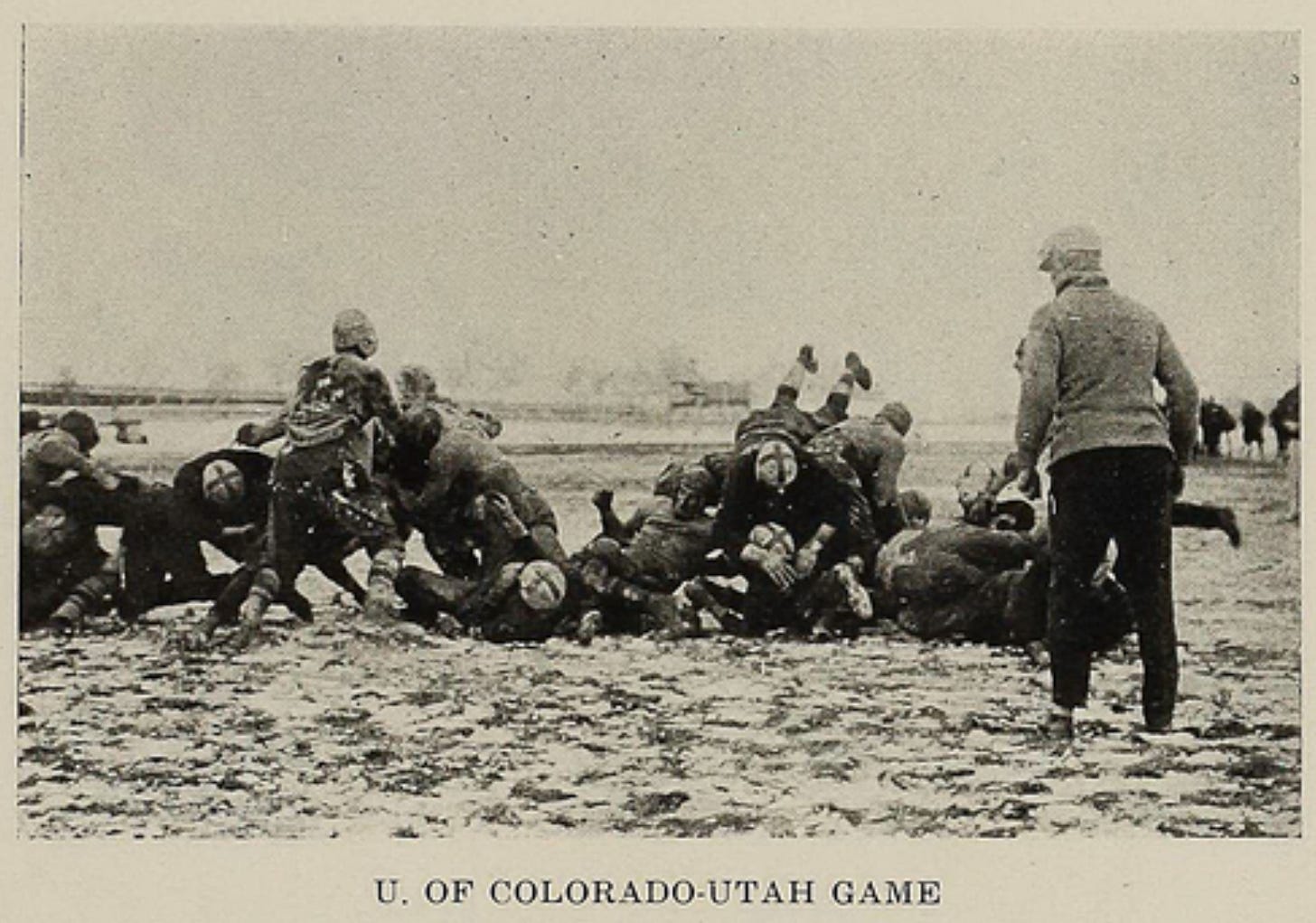

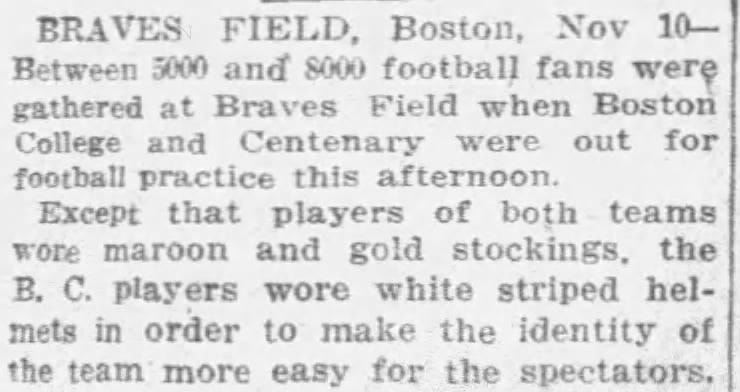

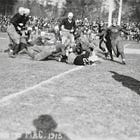
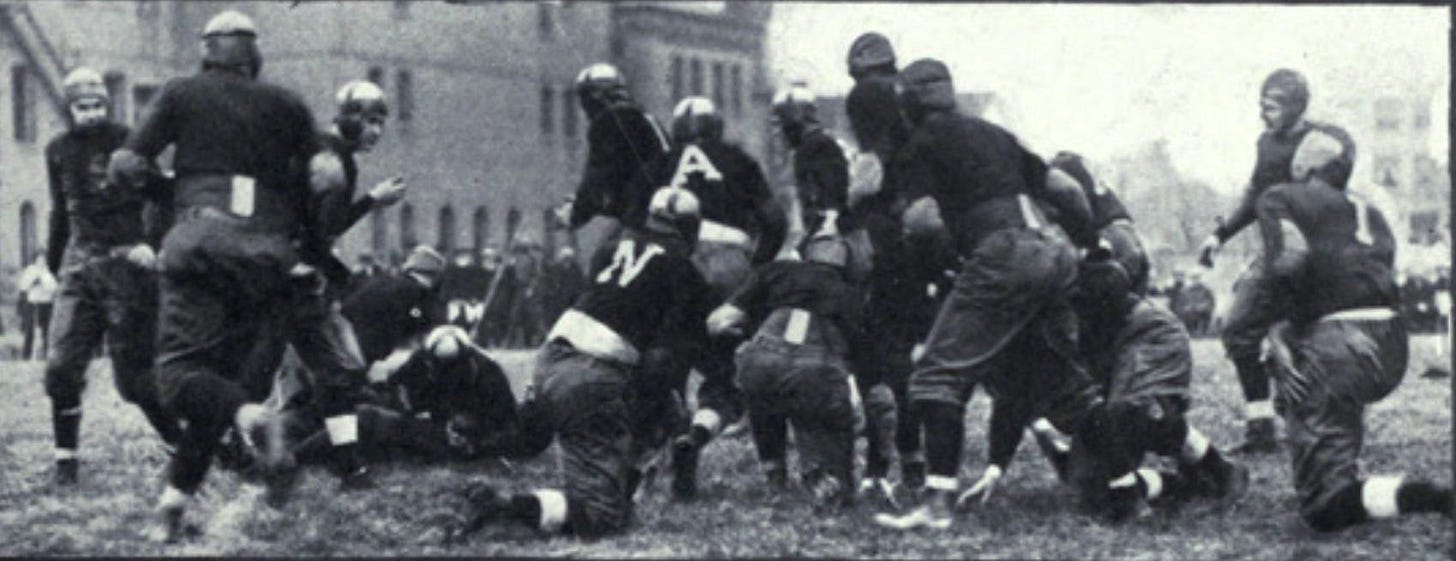
Great research! That couldn't have been easy